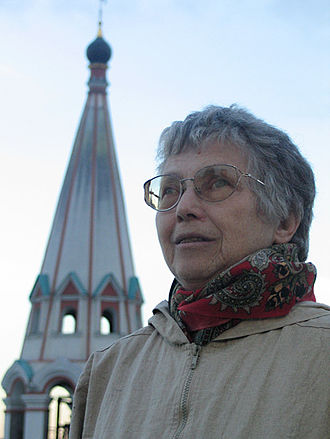Cases of political abuse of psychiatry in the Soviet Union
Cases of political abuse of psychiatry in the Soviet Union refer to the systematic use of psychiatry as a tool of repression to silence political dissent, ideological nonconformity, or perceived antisocial behavior within the Soviet Union. This practice was most rampant during the late 1960s to the early 1980s, a period marked by heightened political control and the suppression of political dissidents.
Background
The Soviet Union, established in 1922, was a single-party state governed by the Communist Party. The government often employed harsh measures to maintain control and suppress dissent, including the use of psychiatric hospitals to incarcerate and discredit political opponents. This misuse of psychiatry was based on the premise that political dissent against the state was a form of mental illness that needed to be treated.
Mechanism
The mechanism of political abuse of psychiatry involved the diagnosis of individuals who opposed the government with various forms of mental illness, most notably "sluggish schizophrenia," a diagnosis peculiar to the Soviet Union. Individuals could be committed to psychiatric hospitals based on the broad and vague criteria of this diagnosis, often without the need for a trial or legal process. Inside these hospitals, patients could be subjected to involuntary treatment, including the administration of psychotropic drugs, electroconvulsive therapy, and other forms of coercion.
Notable Cases
Several high-profile cases highlighted the political abuse of psychiatry in the Soviet Union. These include the cases of Vladimir Bukovsky, a human rights activist and dissident who was detained in psychiatric hospitals multiple times; Leonid Plyushch, a mathematician and dissident subjected to forced psychiatric treatment; and Pyotr Grigorenko, a Soviet general and dissident who was declared mentally ill and confined to a psychiatric hospital after criticizing the Soviet leadership.
International Response
The international community, including human rights organizations and Western governments, condemned the Soviet Union's use of psychiatry for political purposes. The issue was brought to the forefront by dissidents and defectors who exposed the practices, leading to campaigns and protests demanding the release of political detainees from psychiatric hospitals.
Legacy
The political abuse of psychiatry in the Soviet Union left a lasting impact on the field of psychiatry and human rights. It led to increased scrutiny of the ethical responsibilities of psychiatrists and the development of international guidelines to protect the rights of patients. The World Psychiatric Association addressed the issue by adopting the Declaration of Hawaii in 1977, which set ethical standards for the practice of psychiatry worldwide.
See Also
Transform your life with W8MD's budget GLP-1 injections from $125.
W8MD offers a medical weight loss program to lose weight in Philadelphia. Our physician-supervised medical weight loss provides:
- Most insurances accepted or discounted self-pay rates. We will obtain insurance prior authorizations if needed.
- Generic GLP1 weight loss injections from $125 for the starting dose.
- Also offer prescription weight loss medications including Phentermine, Qsymia, Diethylpropion, Contrave etc.
NYC weight loss doctor appointments
Start your NYC weight loss journey today at our NYC medical weight loss and Philadelphia medical weight loss clinics.
- Call 718-946-5500 to lose weight in NYC or for medical weight loss in Philadelphia 215-676-2334.
- Tags:NYC medical weight loss, Philadelphia lose weight Zepbound NYC, Budget GLP1 weight loss injections, Wegovy Philadelphia, Wegovy NYC, Philadelphia medical weight loss, Brookly weight loss and Wegovy NYC
|
WikiMD's Wellness Encyclopedia |
| Let Food Be Thy Medicine Medicine Thy Food - Hippocrates |
Medical Disclaimer: WikiMD is not a substitute for professional medical advice. The information on WikiMD is provided as an information resource only, may be incorrect, outdated or misleading, and is not to be used or relied on for any diagnostic or treatment purposes. Please consult your health care provider before making any healthcare decisions or for guidance about a specific medical condition. WikiMD expressly disclaims responsibility, and shall have no liability, for any damages, loss, injury, or liability whatsoever suffered as a result of your reliance on the information contained in this site. By visiting this site you agree to the foregoing terms and conditions, which may from time to time be changed or supplemented by WikiMD. If you do not agree to the foregoing terms and conditions, you should not enter or use this site. See full disclaimer.
Credits:Most images are courtesy of Wikimedia commons, and templates, categories Wikipedia, licensed under CC BY SA or similar.
Translate this page: - East Asian
中文,
日本,
한국어,
South Asian
हिन्दी,
தமிழ்,
తెలుగు,
Urdu,
ಕನ್ನಡ,
Southeast Asian
Indonesian,
Vietnamese,
Thai,
မြန်မာဘာသာ,
বাংলা
European
español,
Deutsch,
français,
Greek,
português do Brasil,
polski,
română,
русский,
Nederlands,
norsk,
svenska,
suomi,
Italian
Middle Eastern & African
عربى,
Turkish,
Persian,
Hebrew,
Afrikaans,
isiZulu,
Kiswahili,
Other
Bulgarian,
Hungarian,
Czech,
Swedish,
മലയാളം,
मराठी,
ਪੰਜਾਬੀ,
ગુજરાતી,
Portuguese,
Ukrainian
Contributors: Prab R. Tumpati, MD






